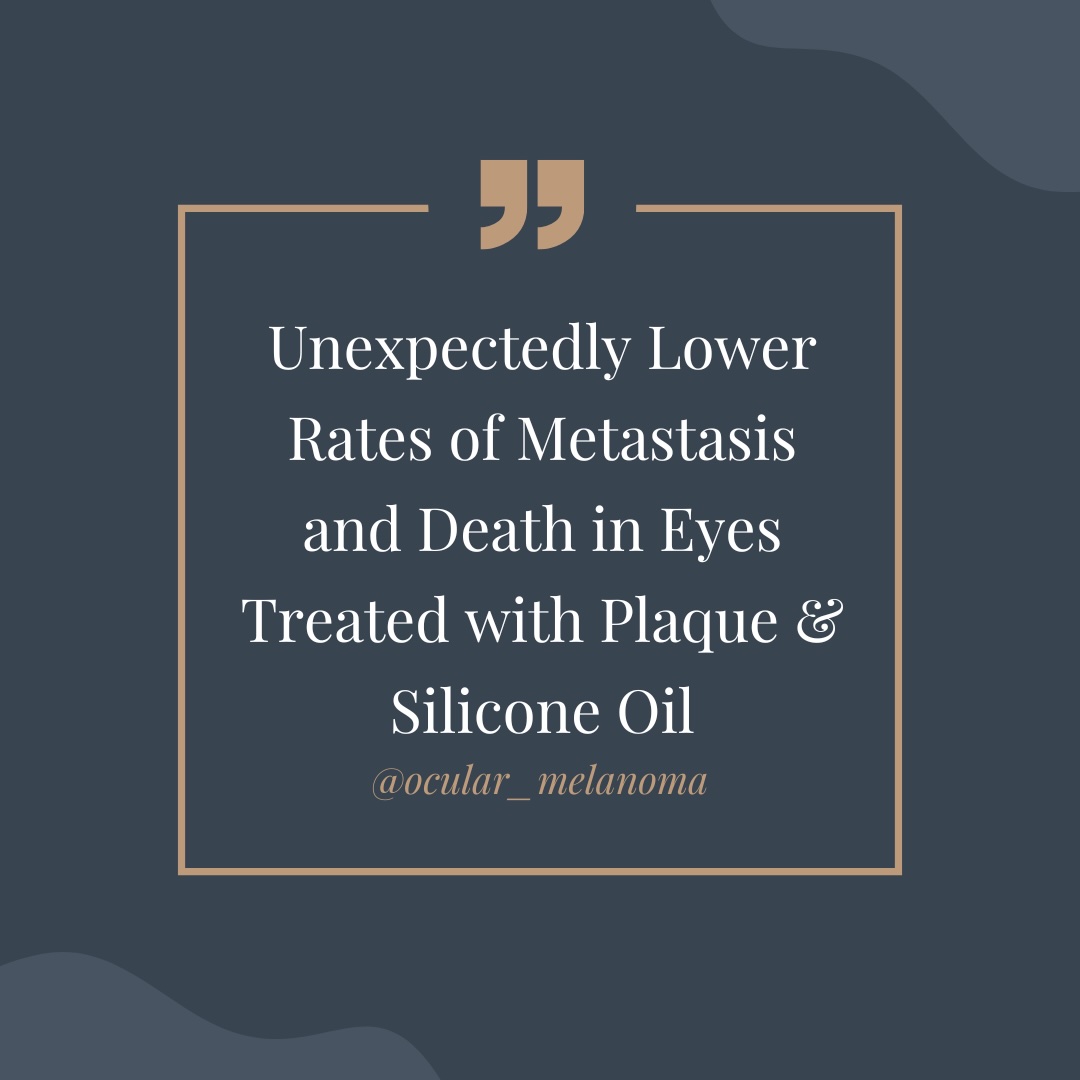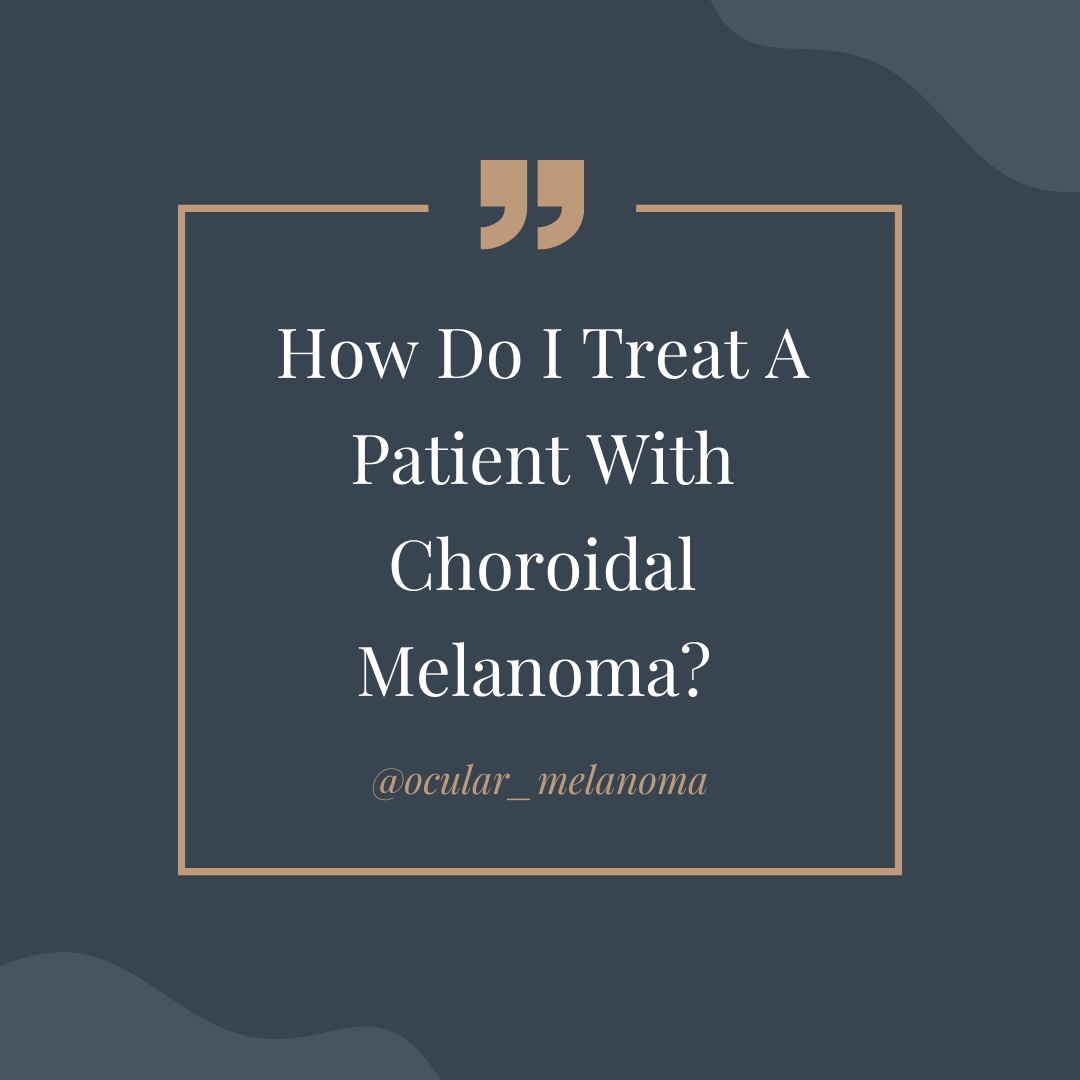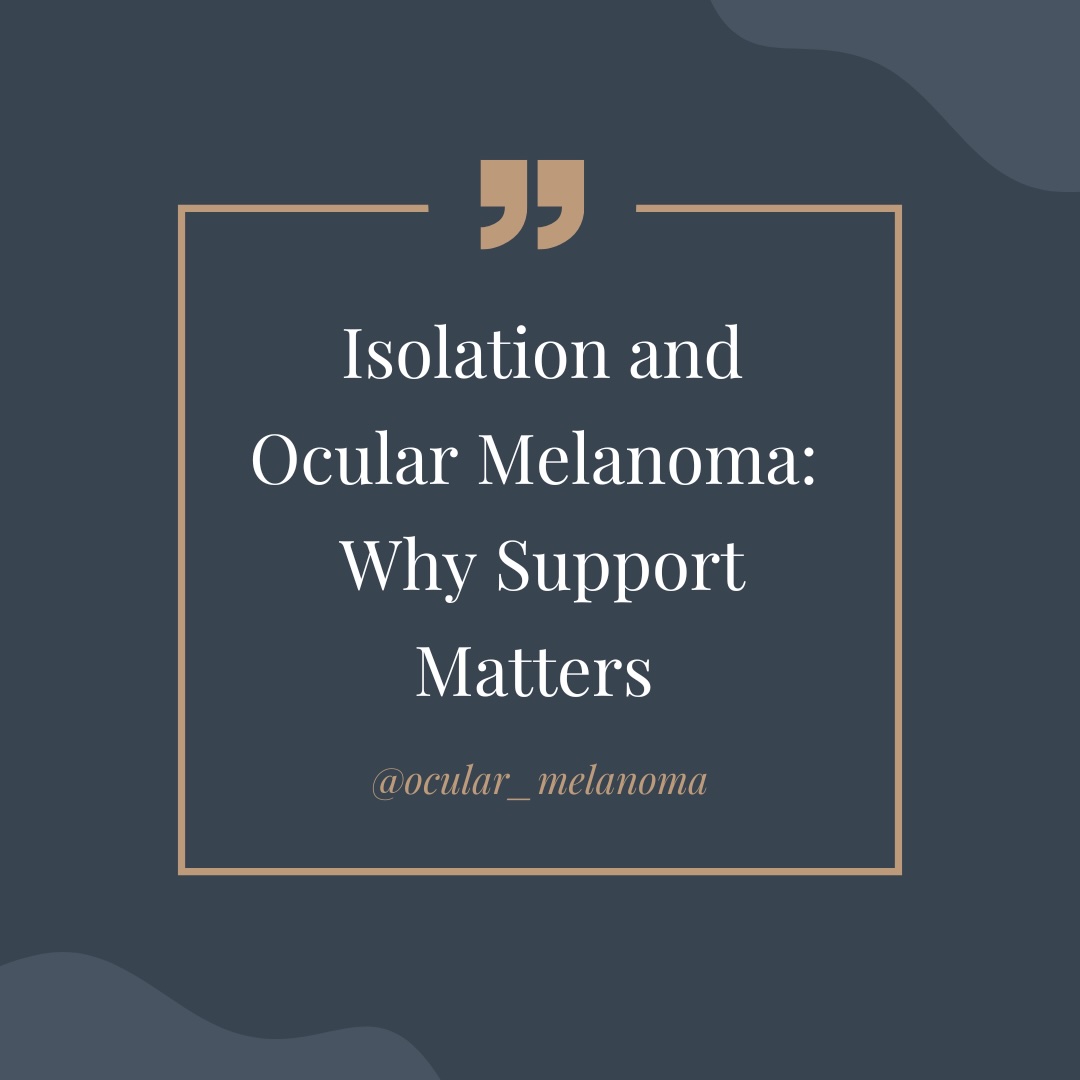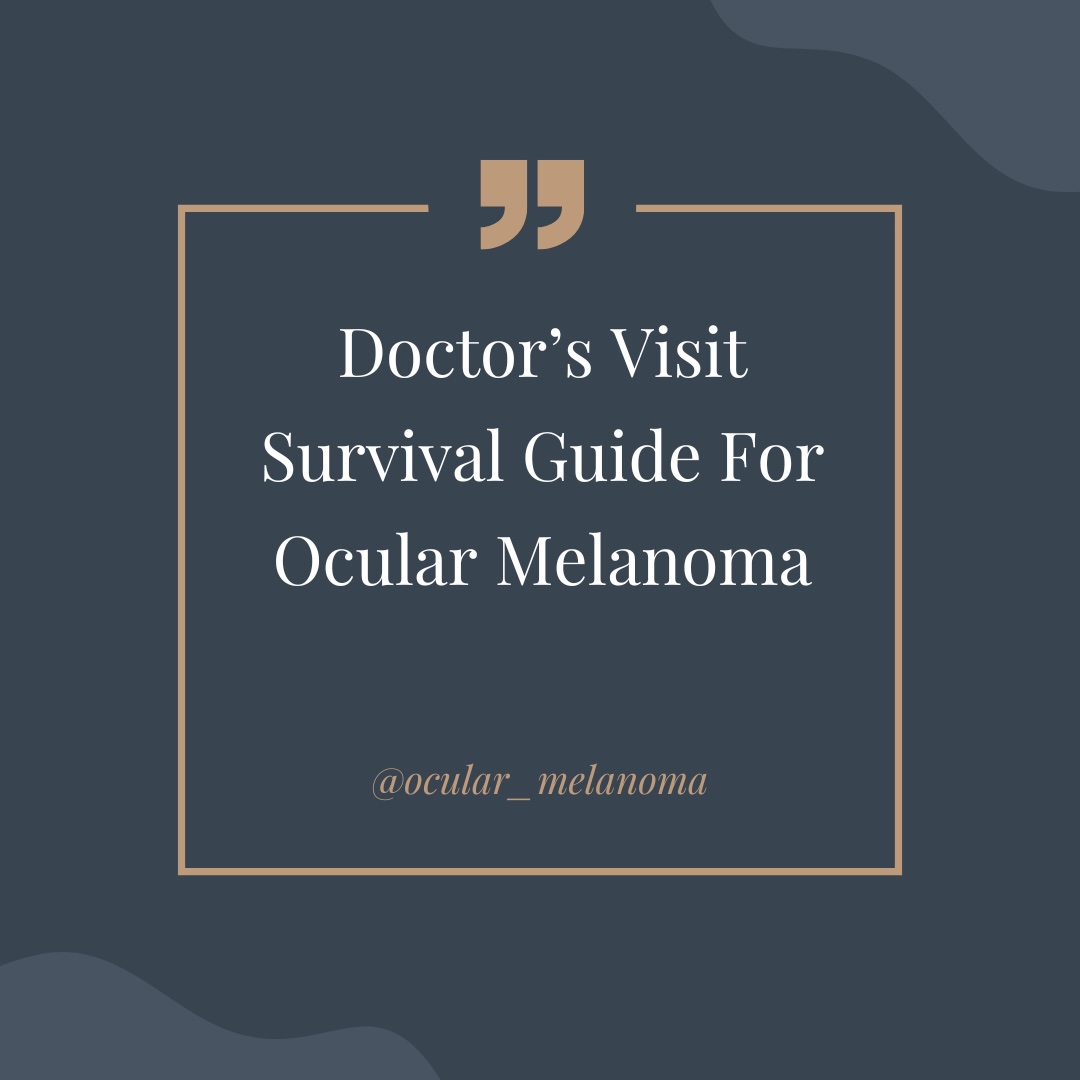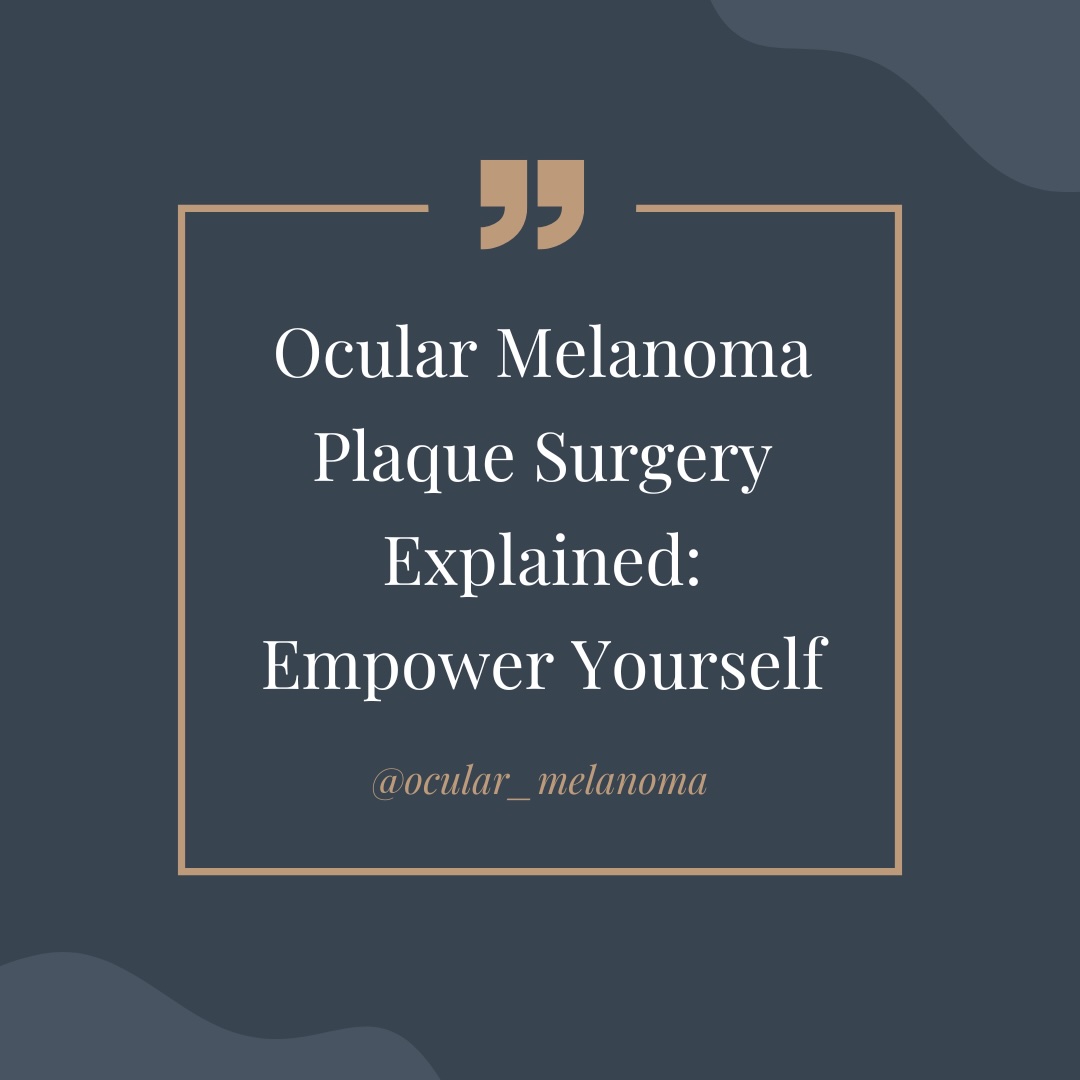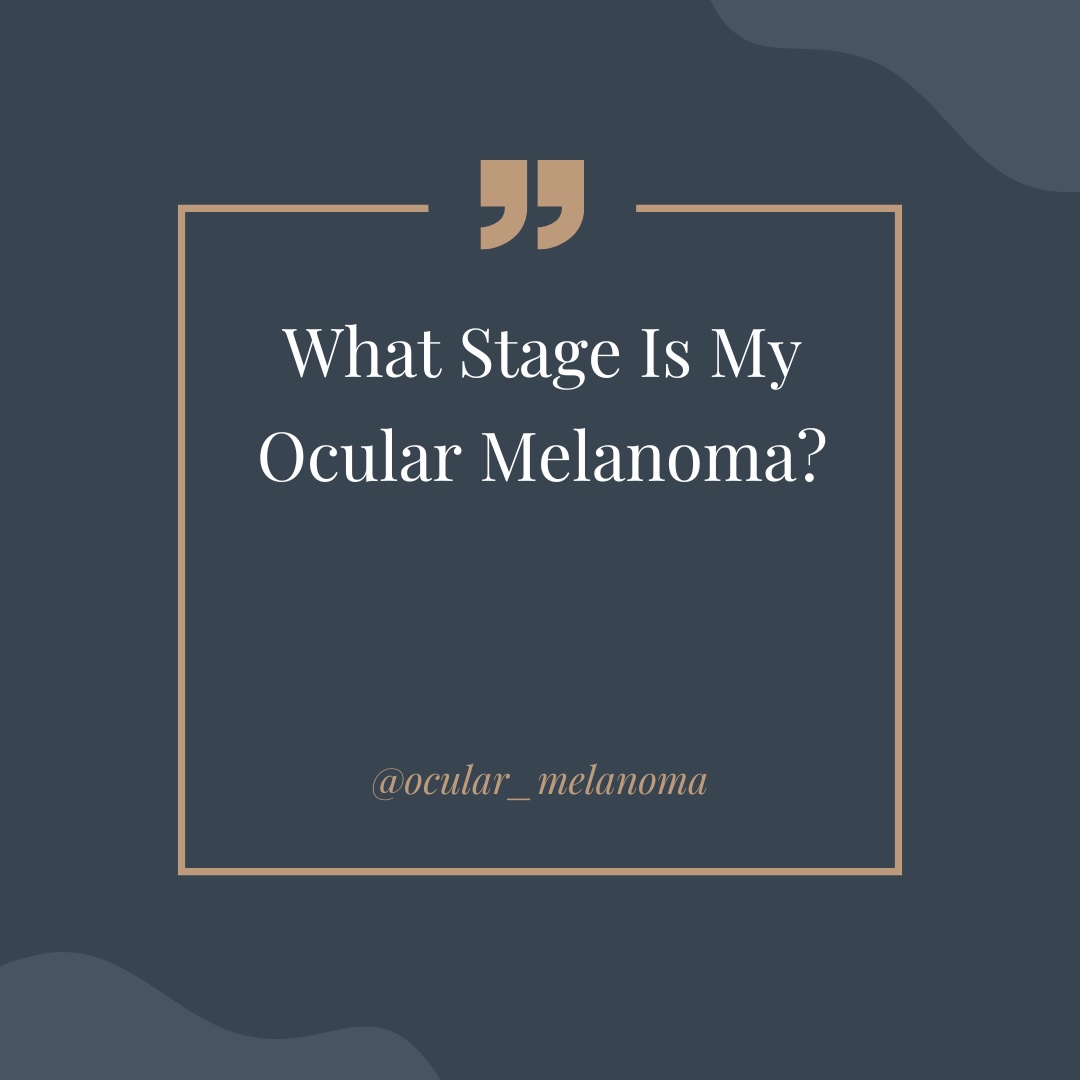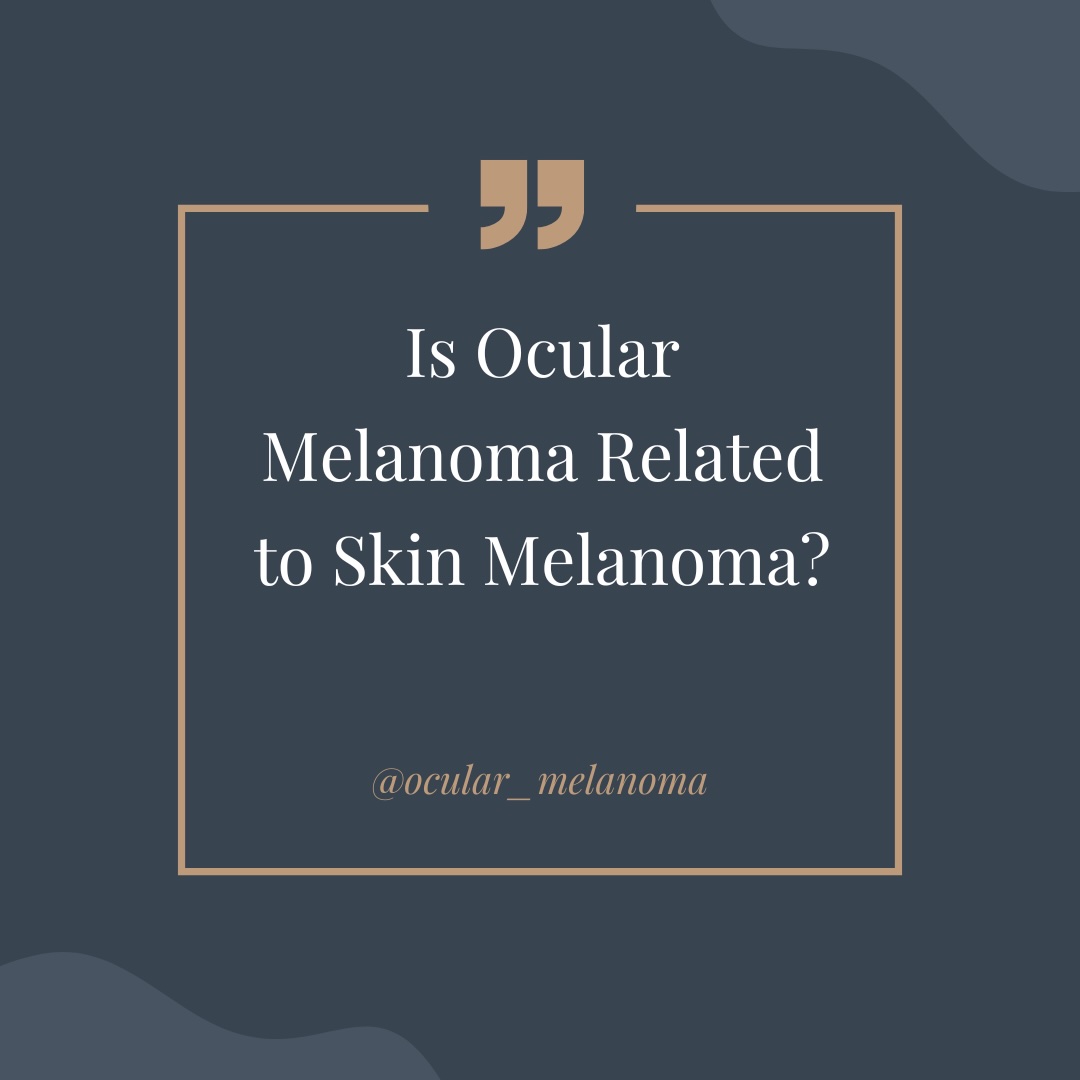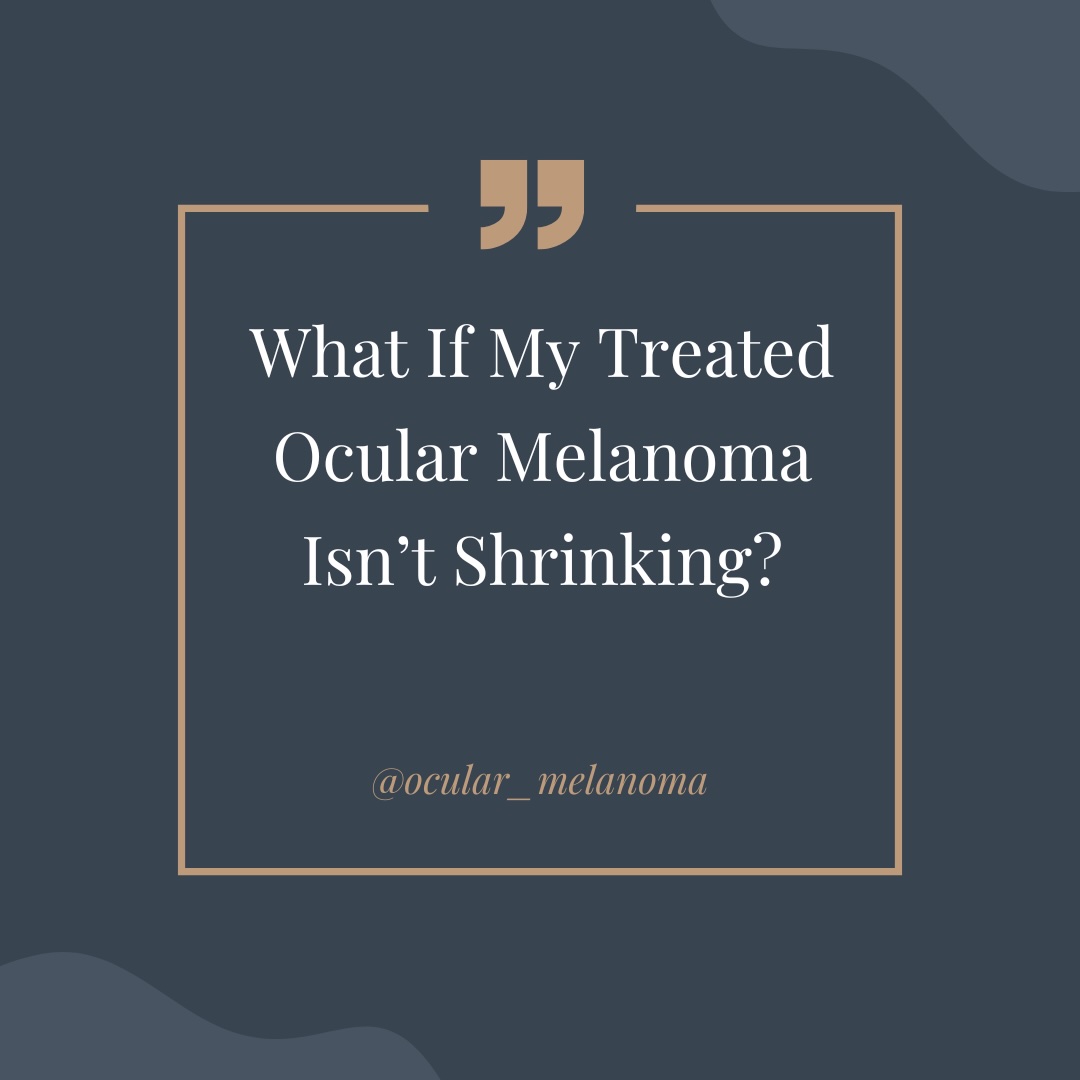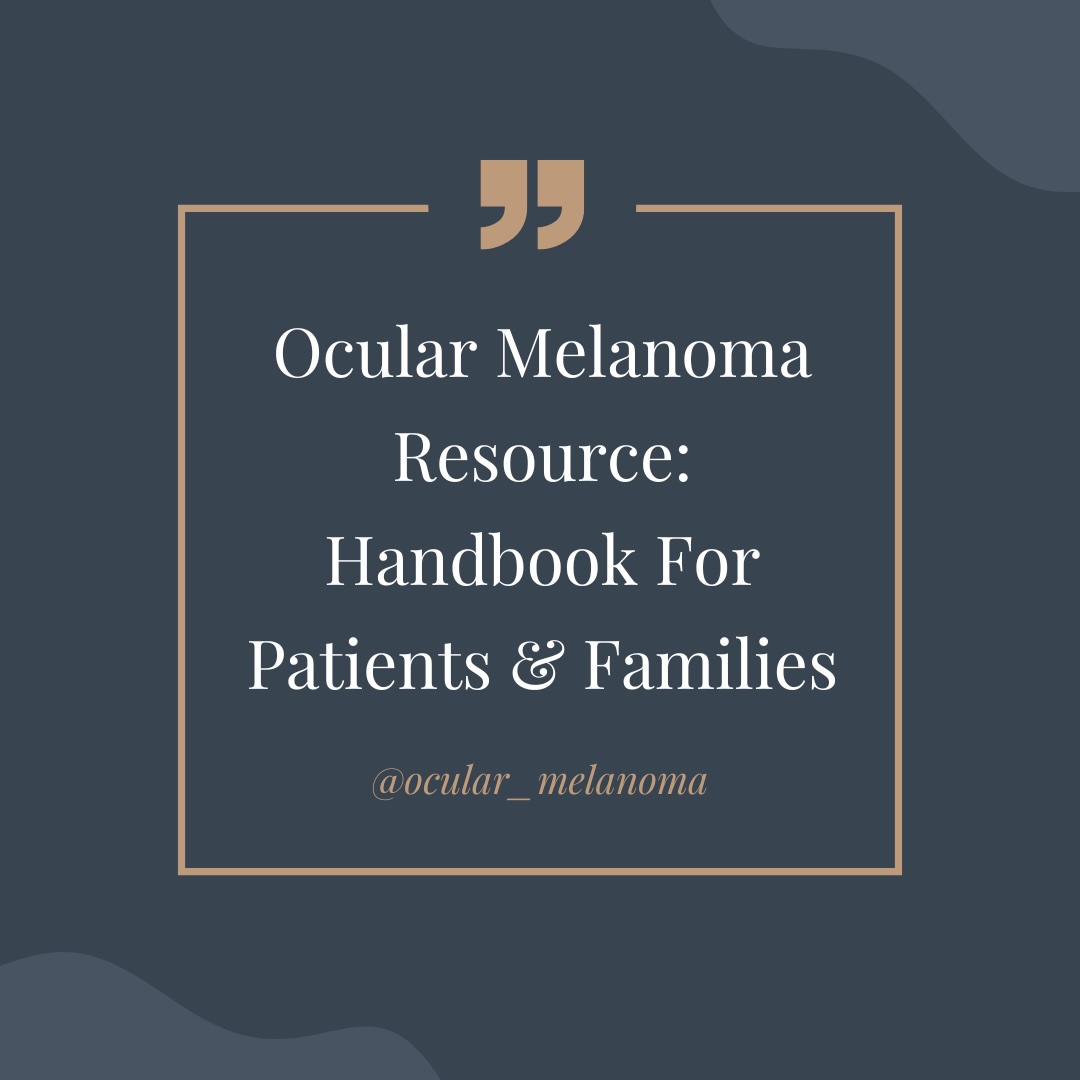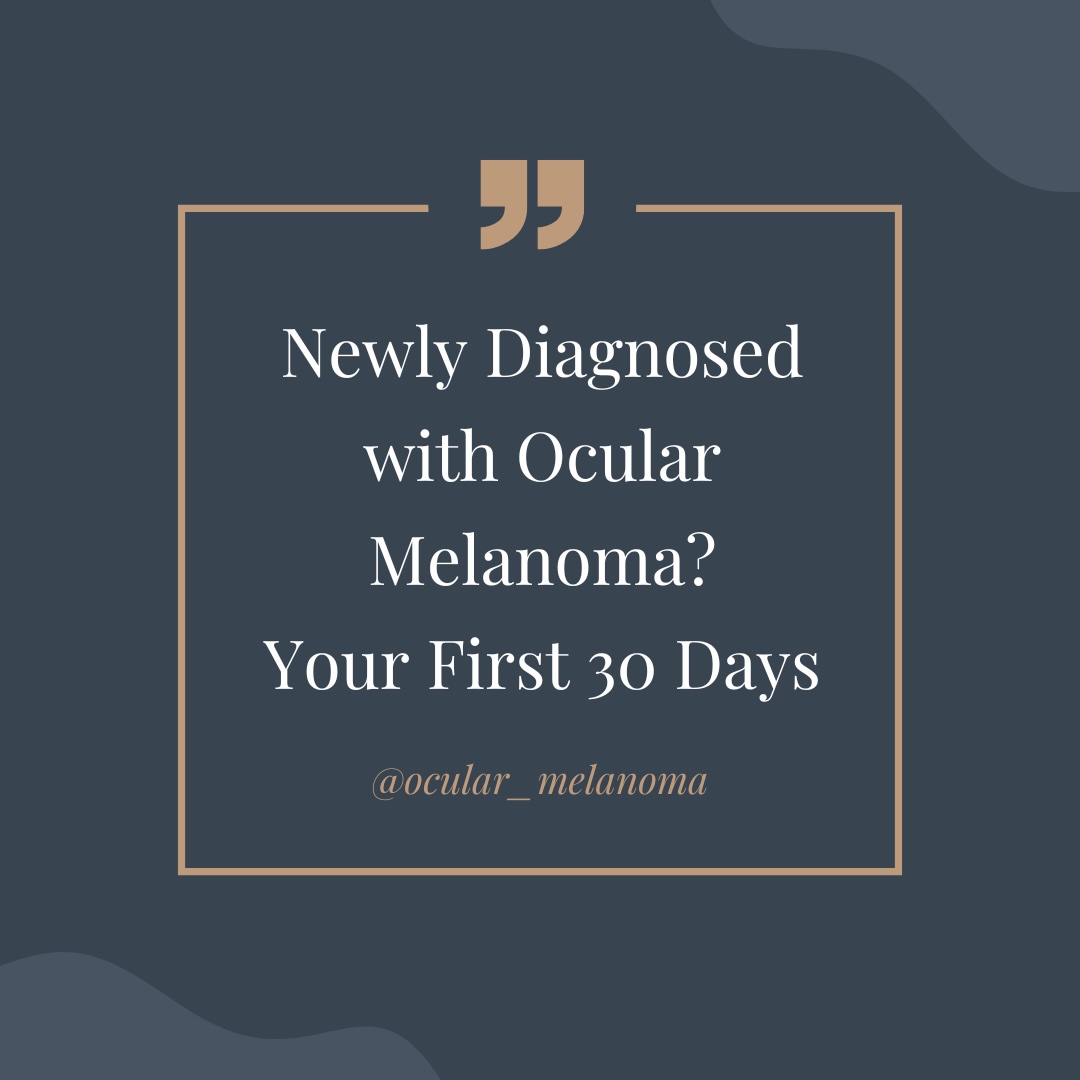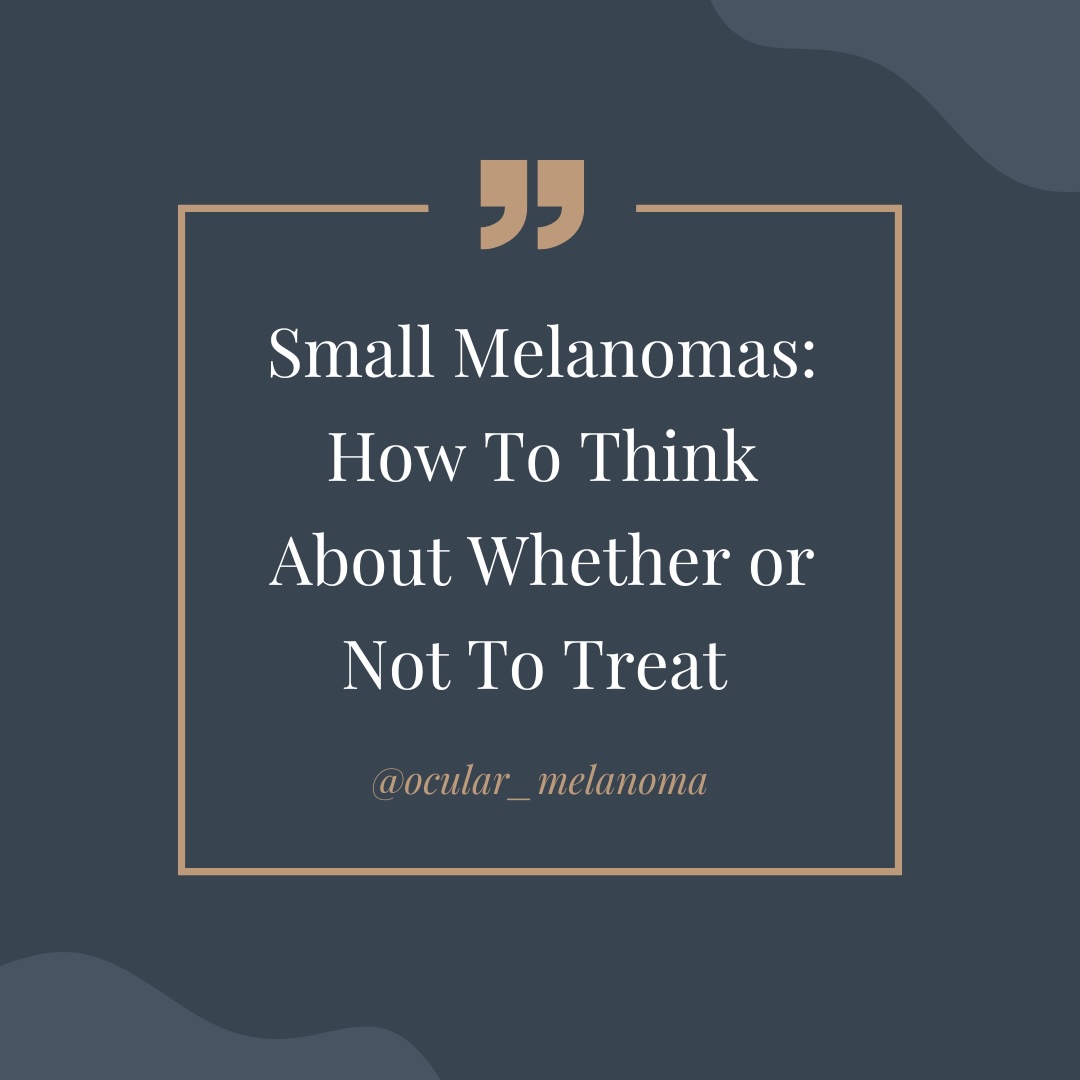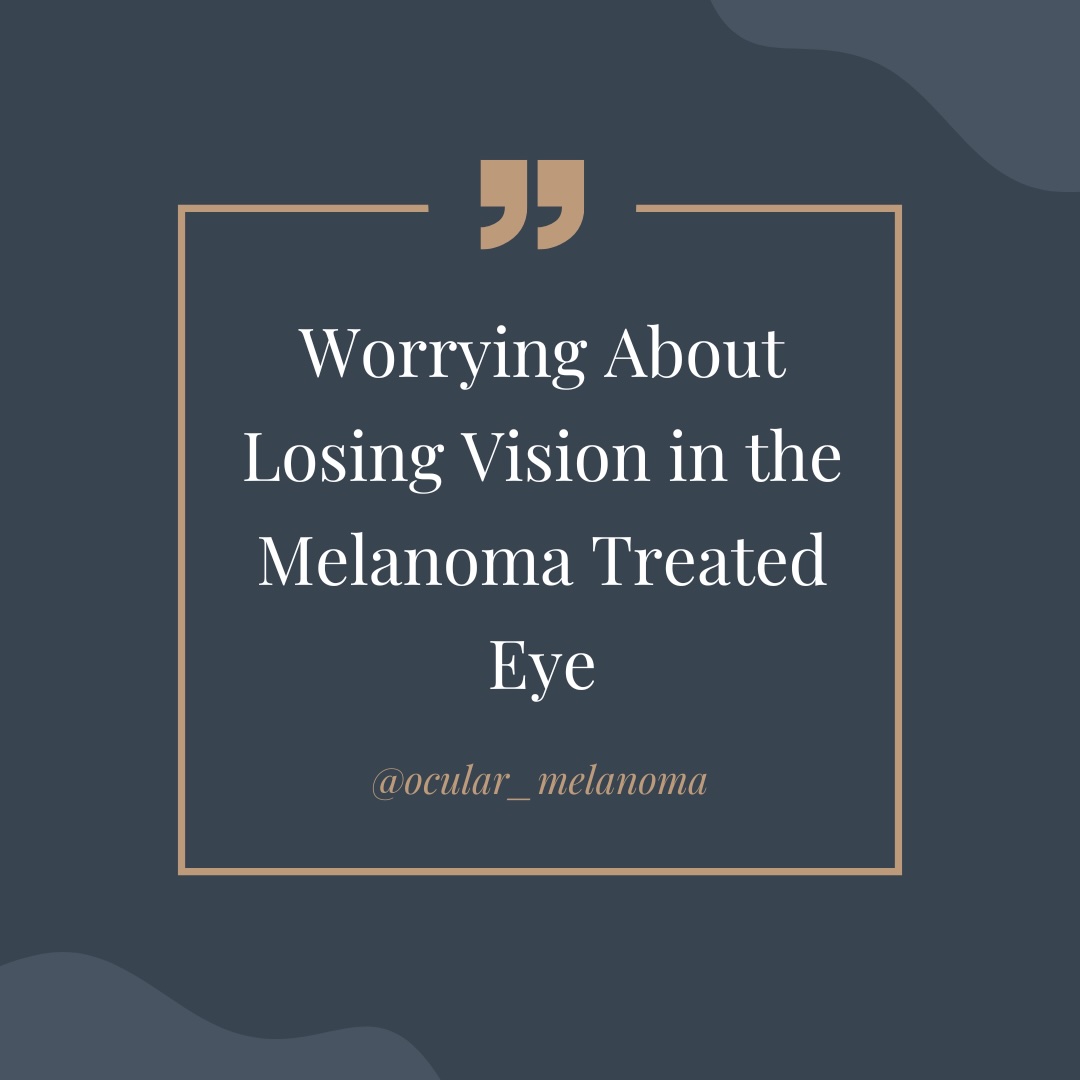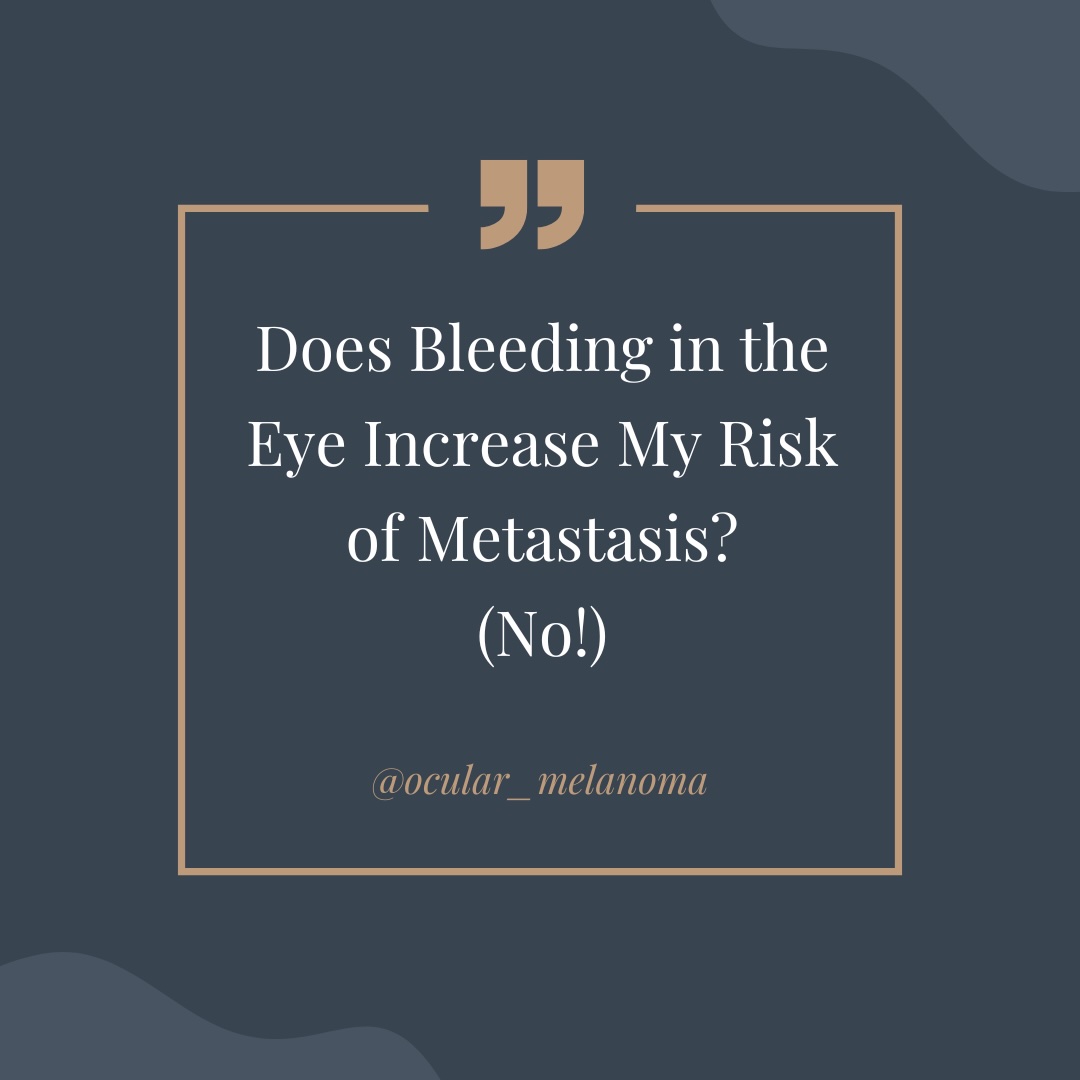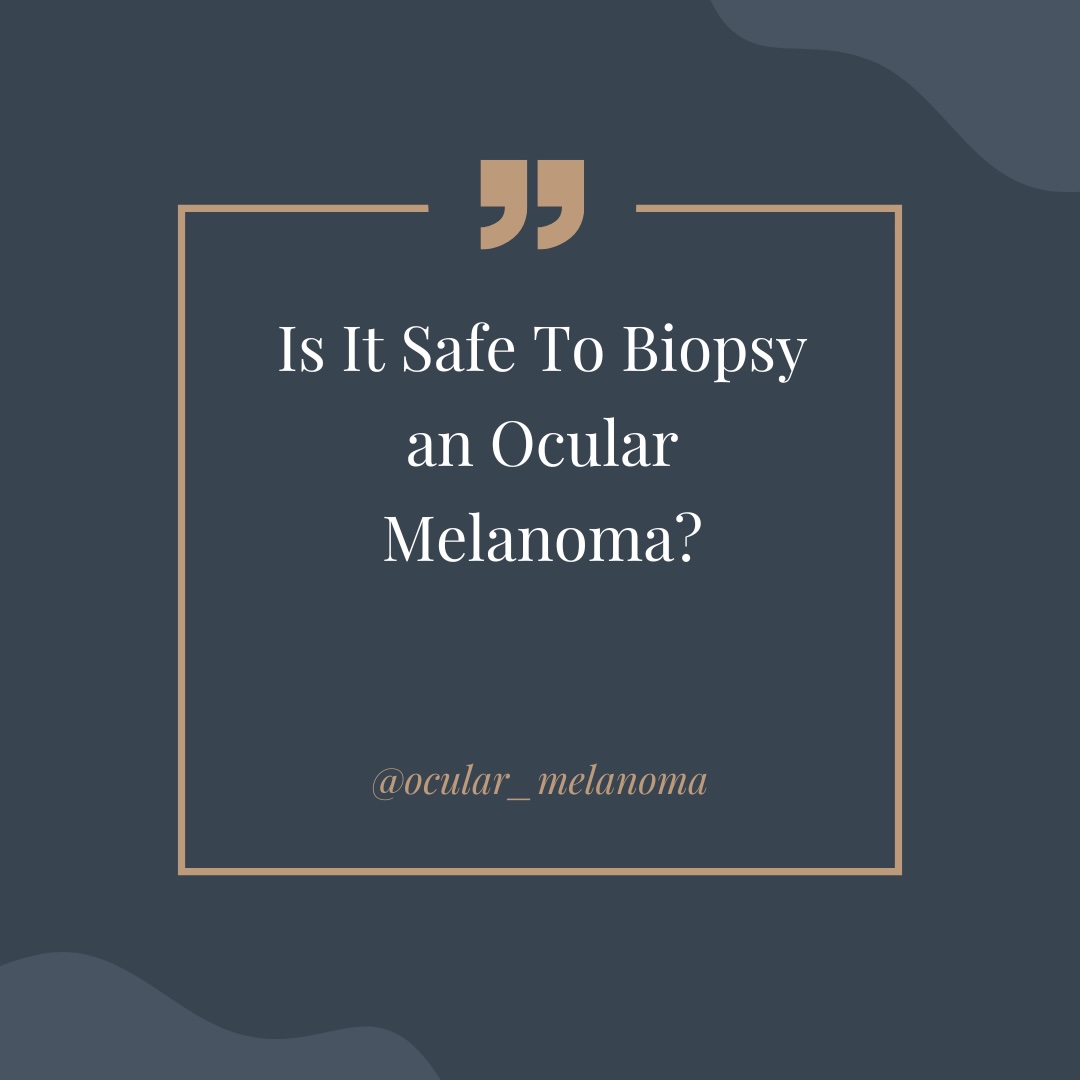Discover Finding Your Way with Ocular Melanoma
Finding Your Way with Ocular Melanoma

Finding Your Way with Ocular Melanoma
Author: Tara McCannel MD PhD
Subscribed: 1Played: 38Subscribe
Share
© 2024
Description
Welcome to Finding Your Way with Ocular Melanoma with Tara McCannel, MD PhD, a guide to understanding everything there is to know about your experience with this rare cancer. Learn through the lens of my knowledge and clinical experience as a physician expert and passionate patient advocate. The more you know about ocular melanoma, the better you will do, and the better you will live. Let's go!
The content shared on the Finding Your Way with Ocular Melanoma podcast is for informational and educational purposes only and does not constitute medical advice. The information provided must not be used as a substitute for professional medical advice, diagnosis, or treatment. As a listener, you are responsible for your own health-related decisions and must consider consulting with a healthcare professional for personalized medical advice.
Tara McCannel MD PhD is a an ocular oncologist, vitreoretinal surgeon and co-founder of Seyhart Wellness. She is also the host of the Mind Body MD podcast where she shares her passion for holistic health and wellness.
The content shared on the Finding Your Way with Ocular Melanoma podcast is for informational and educational purposes only and does not constitute medical advice. The information provided must not be used as a substitute for professional medical advice, diagnosis, or treatment. As a listener, you are responsible for your own health-related decisions and must consider consulting with a healthcare professional for personalized medical advice.
Tara McCannel MD PhD is a an ocular oncologist, vitreoretinal surgeon and co-founder of Seyhart Wellness. She is also the host of the Mind Body MD podcast where she shares her passion for holistic health and wellness.
79 Episodes
Reverse
How does medical progress happen? What drives the adoption of new techniques and better patient outcomes? It is patient themselves who drive progress, rarely the physicians and surgeons themselves. Listen to hear why it is so important that patients vocalize their concerns, and question their doctors. In the field of ocular oncology many ophthalmologists continue to use techniques that have not changed in over 40 years: although thankfully eye removal is not often performed, the need for an improvement over the technique of brachytherapy plaque is long overdue. At UCLA, we have been using silicone oil to shield radiation from harming the healthy tissues of the eye since 2012 after we made this discovery in 2010. However, many ocular oncologists do not have surgical retina skills to perform this and literally tell their patients, "Oh that silicone oil technique doesn't work" when we have several publications that report radiation side effect decrease and visual benefit. Progress in treatments will only happen when patients demand it. Listen to hear how medical progress has also been patient-driven in fields like obstetrics and gynecology. Doctors performing the treatments themselves may not be mentally in a position to make major changes to their practice – making change is hard. It requires that you are okay with coming to terms with the way you might have done something most of your career might not have been the best possible way. For Tara McCannel's resources (including webinar links and link to my book!), visit my website: https://seyhart.com/ocularmelanoma Welcome to Finding Your Way with Ocular Melanoma, a guide to understanding everything there is to know about your experience with this rare cancer. Learn through the lens of my knowledge and clinical experience as a physician expert and passionate patient advocate. The more you know about ocular melanoma, the better you will do, and the better you will live. Let's go! The content shared on the Finding Your Way with Ocular Melanoma podcast is for informational and educational purposes only and does not constitute medical advice. The information provided must not be used as a substitute for professional medical advice, diagnosis, or treatment. As a listener, you are responsible for your own health-related decisions and must consider consulting with a healthcare professional for personalized medical advice. Tara McCannel MD PhD is a an ocular oncologist, vitreoretinal surgeon and co-founder of Seyhart Wellness. She is also the host of the Mind Body MD podcast where she shares her passion for holistic health and wellness.
The data from a cohort of my patients who live in Nevada took me by surprise. I acknowledge the work of Alex Rivas, a University of Nevada medical student and Dr. Wolfram Samlowski, a medical oncologist with uveal melanoma expertise who reached out to me and took action to publish our experience after noticing that our patients were not getting metastasis and dying like the existing data suggests should be the case. The 5-year survival estimate in this cohort was 100%. Although small tumor size, disomy 3 and Class 1 accurately predicted a good prognosis, we found that the usual "high-risk" markers were not accurate. This meant that large tumor size, Monosomy and Class 2 patients that we treated continued to do well despite the odds. What was unique about this cohort? All were residents of Nevada. All were closely followed by Dr. Samlowski, and all had been treated by me. We don't know yet the mechanism of how vitrectomy and silicone oil may alter metastasis, but listen on to hear this story and reflections of changes necessary in this field. Link to full article here: https://www.mdpi.com/2072-6694/17/16/2683 For Tara McCannel's resources (including webinar links and link to my book!), visit my website: https://seyhart.com/ocularmelanoma Welcome to Finding Your Way with Ocular Melanoma, a guide to understanding everything there is to know about your experience with this rare cancer. Learn through the lens of my knowledge and clinical experience as a physician expert and passionate patient advocate. The more you know about ocular melanoma, the better you will do, and the better you will live. Let's go! The content shared on the Finding Your Way with Ocular Melanoma podcast is for informational and educational purposes only and does not constitute medical advice. The information provided must not be used as a substitute for professional medical advice, diagnosis, or treatment. As a listener, you are responsible for your own health-related decisions and must consider consulting with a healthcare professional for personalized medical advice. Tara McCannel MD PhD is a an ocular oncologist, vitreoretinal surgeon and co-founder of Seyhart Wellness. She is also the host of the Mind Body MD podcast where she shares her passion for holistic health and wellness.
Learn why adopting complementary health approaches, such as acupuncture can help boost your overall mind-body health. For your immune system to be boosted, to see your recovery hastened so that you can fine-tune your mind and body to be in the best position to beat metastatic disease, we must think broader. Listen to this episode to understand why it is important to think beyond your immediate healthcare team. For Tara McCannel's resources (including webinar links and link to my book!), visit my website: https://seyhart.com/ocularmelanoma Welcome to Finding Your Way with Ocular Melanoma, a guide to understanding everything there is to know about your experience with this rare cancer. Learn through the lens of my knowledge and clinical experience as a physician expert and passionate patient advocate. The more you know about ocular melanoma, the better you will do, and the better you will live. Let's go! The content shared on the Finding Your Way with Ocular Melanoma podcast is for informational and educational purposes only and does not constitute medical advice. The information provided must not be used as a substitute for professional medical advice, diagnosis, or treatment. As a listener, you are responsible for your own health-related decisions and must consider consulting with a healthcare professional for personalized medical advice. Tara McCannel MD PhD is a an ocular oncologist, vitreoretinal surgeon and co-founder of Seyhart Wellness. She is also the host of the Mind Body MD podcast where she shares her passion for holistic health and wellness.
Treating a patient with choroidal melanoma (otherwise known as uveal melanoma or ocular melanoma), starts with a thorough evaluation - history, ocular examination and supporting imaging tests. This is required to first, make the diagnosis. One of the most challening aspects of treating choroidal melanoma is making the diagnosis. Don't forget to get your second opinions! I discuss when to consider enucleation as well as the benefits of using silicone oil to shield the radiation in the treated eye to reduce exposure to the healthy non-tumor parts of the eye. The follow-up by your ocular oncologist is also important to stay on top of any radiation side-effects that may develop needing treatment, as well as to screen BOTH eyes for many more common and treatable conditions that can occur. For Tara McCannel's resources (including webinar links and link to my book!), visit my website: https://seyhart.com/ocularmelanoma Welcome to Finding Your Way with Ocular Melanoma, a guide to understanding everything there is to know about your experience with this rare cancer. Learn through the lens of my knowledge and clinical experience as a physician expert and passionate patient advocate. The more you know about ocular melanoma, the better you will do, and the better you will live. Let's go! The content shared on the Finding Your Way with Ocular Melanoma podcast is for informational and educational purposes only and does not constitute medical advice. The information provided must not be used as a substitute for professional medical advice, diagnosis, or treatment. As a listener, you are responsible for your own health-related decisions and must consider consulting with a healthcare professional for personalized medical advice. Tara McCannel MD PhD is a an ocular oncologist, vitreoretinal surgeon and co-founder of Seyhart Wellness.
Getting diagnosed with ocular melanoma may be an isolating experience - few have heard of this type of cancer, let alone have an understanding of the eye to know what this can mean for vision. Yet, getting support - connecting deeply with others is key to our emotional and physical wellbeing. I encourage you to learn, lean into your healthcare team, join trusted groups, and talk to others who have been there before. Talking to others and connecting is a key human experience that improves our health, both mind and body. I created Navigating Ocular Melanoma, a small group program to help support people who are seeking understanding, clarity and relief from anxiety and worry about what to do next in their journey with ocular melanoma. This program is available to help like-minded people come together and make positive changes under the guidance and experience of someone who has seen this numerous times before. Learn the ways that you can find support for yourself. For Tara McCannel's resources (including webinar links and link to my book!), visit my website: https://seyhart.com/ocularmelanoma Welcome to Finding Your Way with Ocular Melanoma, a guide to understanding everything there is to know about your experience with this rare cancer. Learn through the lens of my knowledge and clinical experience as a physician expert and passionate patient advocate. The more you know about ocular melanoma, the better you will do, and the better you will live. Let's go! The content shared on the Finding Your Way with Ocular Melanoma podcast is for informational and educational purposes only and does not constitute medical advice. The information provided must not be used as a substitute for professional medical advice, diagnosis, or treatment. As a listener, you are responsible for your own health-related decisions and must consider consulting with a healthcare professional for personalized medical advice. Tara McCannel MD PhD is a an ocular oncologist, vitreoretinal surgeon and co-founder of Seyhart Wellness. She is also the host of the Mind Body MD podcast where she shares her passion for holistic health and wellness.
If you missed the Live Webinar, welcome to this Episode! It's all here. Learn and get your questions answered about everything to know about ocular melanoma biopsy. I will review ocular anatomy, what can be tested on a biopsy, techniques of biopsy, I'll go through published data on biopsy safety (eye and metastatic-risk safety), the challenges of biopsy, when to take a biopsy, and finally what to do with your biopsy result. For Tara McCannel's resources (including webinar links and link to my book!), visit my website: https://seyhart.com/ocularmelanoma Welcome to Finding Your Way with Ocular Melanoma, a guide to understanding everything there is to know about your experience with this rare cancer. Learn through the lens of my knowledge and clinical experience as a physician expert and passionate patient advocate. The more you know about ocular melanoma, the better you will do, and the better you will live. Let's go! The content shared on the Finding Your Way with Ocular Melanoma podcast is for informational and educational purposes only and does not constitute medical advice. The information provided must not be used as a substitute for professional medical advice, diagnosis, or treatment. As a listener, you are responsible for your own health-related decisions and must consider consulting with a healthcare professional for personalized medical advice. Tara McCannel MD PhD is a an ocular oncologist, vitreoretinal surgeon and co-founder of Seyhart Wellness. She is also the host of the Mind Body MD podcast where she shares her passion for holistic health and wellness.
Just diagnosed with ocular melanoma or other unusual medical condition? If you've been feeling overwhelmed, confused, or unsure what to ask your doctor, this is for you. I'm Dr. Tara McCannel, an ocular oncologist with over 20 years of experience—and I'm here to help you maximize your medical appointments, ask the right questions, and become an empowered, informed patient. Whether you're navigating plaque radiation, biopsy decisions, or systemic screening, this episode goes through exactly how to prepare for your appointments, research your condition, and build a strong partnership with your care team. Don't go in passively, show up with an action plan — listen to this episode first to feel confident, clear, and in control. For Tara McCannel's resources (including webinar links and link to my book!), visit my website: https://seyhart.com/ocularmelanoma Welcome to Finding Your Way with Ocular Melanoma, a guide to understanding everything there is to know about your experience with this rare cancer. Learn through the lens of my knowledge and clinical experience as a physician expert and passionate patient advocate. The more you know about ocular melanoma, the better you will do, and the better you will live. Let's go! The content shared on the Finding Your Way with Ocular Melanoma podcast is for informational and educational purposes only and does not constitute medical advice. The information provided must not be used as a substitute for professional medical advice, diagnosis, or treatment. As a listener, you are responsible for your own health-related decisions and must consider consulting with a healthcare professional for personalized medical advice. Tara McCannel MD PhD is a an ocular oncologist, vitreoretinal surgeon and co-founder of Seyhart Wellness. She is also the host of the Mind Body MD podcast where she shares her passion for holistic health and wellness.
When you find yourself entering a situation that is completely foreign, it is imperative that you teach yourself everything - read, learn, ask questions, gain clarity. Why? The more you understand your diagnosis and the details of what actually happens when you have eye surgery - specifically radiation plaque surgery - the more in control you will be. Why does being in control matter? More understanding and working through the information brings clarity which results in you being calm, cool and level-headed. From this place, you become your best advocate and can start to be proactive (instead of reactive) in your ocular melanoma journey. For Tara McCannel's resources (including webinar links and link to my book!), visit my website: https://seyhart.com/ocularmelanoma Welcome to Finding Your Way with Ocular Melanoma, a guide to understanding everything there is to know about your experience with this rare cancer. Learn through the lens of my knowledge and clinical experience as a physician expert and passionate patient advocate. The more you know about ocular melanoma, the better you will do, and the better you will live. Let's go! The content shared on the Finding Your Way with Ocular Melanoma podcast is for informational and educational purposes only and does not constitute medical advice. The information provided must not be used as a substitute for professional medical advice, diagnosis, or treatment. As a listener, you are responsible for your own health-related decisions and must consider consulting with a healthcare professional for personalized medical advice. Tara McCannel MD PhD is a an ocular oncologist, vitreoretinal surgeon and co-founder of Seyhart Wellness. She is also the host of the Mind Body MD podcast where she shares her passion for holistic health and wellness.
In cancer of most parts of the body a Stage from 1 to 4 is often assigned at various time points in the cancer journey. This may help to predict prognosis, guide treatments and provide a framework for people to understand how potentially serious things may be. With regards to ocular melanoma, we rely on Staging much less. In fact, the stage of your ocular melanoma cancer does not change how we treat the eye. However, when people are first diagnosed, having the ocular melanoma staged does help provide a framework or starting point so that people better understand where things are at - how bad is this? How advanced is my case? Listen to this episode to learn more about cancer staging, how the size of the ocular melanoma at diagnosis influences the staging, and finally how to figure out what exact Stage (from I to IV) is your ocular melanoma. For Tara McCannel's resources (including webinar links and link to my book!), visit my website: https://seyhart.com/ocularmelanoma Welcome to Finding Your Way with Ocular Melanoma, a guide to understanding everything there is to know about your experience with this rare cancer. Learn through the lens of my knowledge and clinical experience as a physician expert and passionate patient advocate. The more you know about ocular melanoma, the better you will do, and the better you will live. Let's go! The content shared on the Finding Your Way with Ocular Melanoma podcast is for informational and educational purposes only and does not constitute medical advice. The information provided must not be used as a substitute for professional medical advice, diagnosis, or treatment. As a listener, you are responsible for your own health-related decisions and must consider consulting with a healthcare professional for personalized medical advice. Tara McCannel MD PhD is a an ocular oncologist, vitreoretinal surgeon and co-founder of Seyhart Wellness. She is also the host of the Mind Body MD podcast where she shares her passion for holistic health and wellness.
Although they share the same name - "melanoma" - the two cancers are cousins at best. Here are the differences - the tumor mutations between eye and skin melanoma are distinct; the systemic therapies that are most effective are different; the pattern of metastasis is different; and the risk factors for cancer development have differences. Watch to learn more! For Tara McCannel's resources (including webinar links and link to my book!), visit my website: https://seyhart.com/ocularmelanoma Welcome to Finding Your Way with Ocular Melanoma, a guide to understanding everything there is to know about your experience with this rare cancer. Learn through the lens of my knowledge and clinical experience as a physician expert and passionate patient advocate. The more you know about ocular melanoma, the better you will do, and the better you will live. Let's go! The content shared on the Finding Your Way with Ocular Melanoma podcast is for informational and educational purposes only and does not constitute medical advice. The information provided must not be used as a substitute for professional medical advice, diagnosis, or treatment. As a listener, you are responsible for your own health-related decisions and must consider consulting with a healthcare professional for personalized medical advice. Tara McCannel MD PhD is a an ocular oncologist, vitreoretinal surgeon and co-founder of Seyhart Wellness. She is also the host of the Mind Body MD podcast where she shares her passion for holistic health and wellness.
After you have had radiation treatment to destroy the ocular melanoma, what's left of your tumor is no longer viable. Radiation destroys the cellular DNA which is needed for the cell to replicate itself, that is for the cancer to grow. After treatment, what's left of the ocular melanoma forms a scar that we continue to measure at every visit with your ocular oncologist. As long as we see the same size as the last measurement, or a decrease in size, this is proof of tumor response (that is, signs of death). It is not necessary to always have shrinking or even total disappearance of the ocular melanoma in order for your radiation treatment to have been successful. Listen to this episode also to learn about what I do if there is growth after treatment. For Tara McCannel's resources (including webinar links and link to my book!), visit my website: https://seyhart.com/ocularmelanoma Welcome to Finding Your Way with Ocular Melanoma, a guide to understanding everything there is to know about your experience with this rare cancer. Learn through the lens of my knowledge and clinical experience as a physician expert and passionate patient advocate. The more you know about ocular melanoma, the better you will do, and the better you will live. Let's go! The content shared on the Finding Your Way with Ocular Melanoma podcast is for informational and educational purposes only and does not constitute medical advice. The information provided must not be used as a substitute for professional medical advice, diagnosis, or treatment. As a listener, you are responsible for your own health-related decisions and must consider consulting with a healthcare professional for personalized medical advice. Tara McCannel MD PhD is a an ocular oncologist, vitreoretinal surgeon and co-founder of Seyhart Wellness. She is also the host of the Mind Body MD podcast where she shares her passion for holistic health and wellness.
Finding Your Way With Ocular Melanoma: A Handbook For Patients and Families was created to serve as an all-in-one-place resource, written by one of the most experienced ocular oncologists in the world, yours truly! Searching for knowledge on the internet may result in inaccurate information, a focus on the worst-case scenarios, and conflicting ideas on what it is that you should do. My goal is to provide accurate and relatable information - the information that I share with my patients everyday - that can serve as a starting point for your journey with ocular melanoma. The more you know, the more you can engage with your healthcare team, ocular oncologist and have your questions answered. Know that it is possible to thrive after a diagnosis of ocular melanoma - I have seen this countless times. One thing is certain - knowledge is power. For Tara McCannel's resources (including webinar links and link to my book!), visit my website: https://seyhart.com/ocularmelanoma Welcome to Finding Your Way with Ocular Melanoma, a guide to understanding everything there is to know about your experience with this rare cancer. Learn through the lens of my knowledge and clinical experience as a physician expert and passionate patient advocate. The more you know about ocular melanoma, the better you will do, and the better you will live. Let's go! The content shared on the Finding Your Way with Ocular Melanoma podcast is for informational and educational purposes only and does not constitute medical advice. The information provided must not be used as a substitute for professional medical advice, diagnosis, or treatment. As a listener, you are responsible for your own health-related decisions and must consider consulting with a healthcare professional for personalized medical advice. Tara McCannel MD PhD is a an ocular oncologist, vitreoretinal surgeon and co-founder of Seyhart Wellness. She is also the host of the Mind Body MD podcast where she shares her passion for holistic health and wellness.
If you've been told that you may have an eye cancer, ocular melanoma, uveal melanoma, or even an unusual freckle, mole, nevus or lesion - it's time to lean in. Don't panic - the diagnosis must be confirmed first. There is a good chance that you do not have cancer, but there also is a chance that you may have eye cancer. How do you figure this out? You must see an ocular oncologist. An ocular oncologist is an ophthalmic surgeon who has additional expertise in treating cancers of the eye. And I recommend that you see 2 or 3 ocular oncologists if you can, because opinions among ocular oncologists may vary depending on the individual's experience and treatment preferences. We actually do not have uniform treatment standards in the field ocular oncology! Getting opinions is part of your learning. The more you know and understand, the better you will do. Also, treating eye cancer is never an emergency. You have a few weeks to do your due diligence, get opinions and learn as much as you can before the day of your surgery. For Tara McCannel's resources (including webinar links and link to my book!), visit my website: https://seyhart.com/ocularmelanoma Welcome to Finding Your Way with Ocular Melanoma, a guide to understanding everything there is to know about your experience with this rare cancer. Learn through the lens of my knowledge and clinical experience as a physician expert and passionate patient advocate. The more you know about ocular melanoma, the better you will do, and the better you will live. Let's go! The content shared on the Finding Your Way with Ocular Melanoma podcast is for informational and educational purposes only and does not constitute medical advice. The information provided must not be used as a substitute for professional medical advice, diagnosis, or treatment. As a listener, you are responsible for your own health-related decisions and must consider consulting with a healthcare professional for personalized medical advice. Tara McCannel MD PhD is a an ocular oncologist, vitreoretinal surgeon and co-founder of Seyhart Wellness. She is also the host of the Mind Body MD podcast where she shares her passion for holistic health and wellness.
Did you get a second opinion? I cannot stress how important it is for EVERYONE to get a second opinion when you have been diagnosed with an ocular melanoma or a suspicious choroidal nevus or spot that your ocular oncologist may be concerned about. Why? Shouldn't my ocular oncologist - a highly trained individual - know what they are doing? Experience between all ocular oncologists is highly variable, and ocular melanoma is so rare that most ophthalmologists have never seen one in their practice. When the wrong decisions are made in ocular oncology, cancers can spread, vision can be lost due to treatment delay, vision can be lost due to unnecessary treatment, not to mention eyes may be entirely removed because of delay and even misdiagnosis. Your doctor will almost always make decisions because they believe they are acting in your best interest, but you may discover that another ocular oncologist would not have necessarily taken the same treatment path. If you are afraid that your doctor might get offended or that it is disrespectul to get another opinion, please think again. It is 2025. Healthcare must revolve around YOU, the patient. You are the reason there is even a healthcare system to begin with. Our job in medicine is to serve the patient. If your doctor or healthcare team gives you a hard time, or does anything short of encouraging you to get a second opinion, it may be time to change doctors. How else can you advocate for yourself, if you are not encouraged to learn and better understand what you have? For Tara McCannel's resources (including webinar links and link to my book!), visit my website: https://seyhart.com/ocularmelanoma Welcome to Finding Your Way with Ocular Melanoma, a guide to understanding everything there is to know about your experience with this rare cancer. Learn through the lens of my knowledge and clinical experience as a physician expert and passionate patient advocate. The more you know about ocular melanoma, the better you will do, and the better you will live. Let's go! The content shared on the Finding Your Way with Ocular Melanoma podcast is for informational and educational purposes only and does not constitute medical advice. The information provided must not be used as a substitute for professional medical advice, diagnosis, or treatment. As a listener, you are responsible for your own health-related decisions and must consider consulting with a healthcare professional for personalized medical advice. Tara McCannel MD PhD is a an ocular oncologist, vitreoretinal surgeon and co-founder of Seyhart Wellness. She is also the host of the Mind Body MD podcast where she shares her passion for holistic health and wellness.
Going through the recovery of your ocular melanoma surgery can be a daunting experience. Learn about the reasons for eye pain, redness, swelling and what you can do to get through the healing process. Always reach out to your ocular oncologist or eyecare provider if you have questions about your recovery process. Listen to learn more! For Tara McCannel's resources (including webinar links and link to my book!), visit my website: https://seyhart.com/ocularmelanoma Welcome to Finding Your Way with Ocular Melanoma, a guide to understanding everything there is to know about your experience with this rare cancer. Learn through the lens of my knowledge and clinical experience as a physician expert and passionate patient advocate. The more you know about ocular melanoma, the better you will do, and the better you will live. Let's go! The content shared on the Finding Your Way with Ocular Melanoma podcast is for informational and educational purposes only and does not constitute medical advice. The information provided must not be used as a substitute for professional medical advice, diagnosis, or treatment. As a listener, you are responsible for your own health-related decisions and must consider consulting with a healthcare professional for personalized medical advice. Tara McCannel MD PhD is a an ocular oncologist, vitreoretinal surgeon and co-founder of Seyhart Wellness. She is also the host of the Mind Body MD podcast where she shares her passion for holistic health and wellness.
What is a retinal detachment? In most cases, retinal detachment is caused by a rip in the retina (i.e., retinal tear) from pulling of the vitreous humor. The torn retina then allows liquified vitreous humor to enter the space under the retina which causes a peeling away of the retina from its normal anatomic position. Retina that is separated from its attachment position does not function properly, resulting in a decrease or loss of vision. The symptoms of a typical retinal detachment like this, may be a sudden onset of floaters (caused by the retinal tear) and a curtain or veil like obstruction of sight. Retinal detachment is an emergency that is treated by a vitreoretinal surgeon. Nearly all ocular melanomas are associated with a retinal detachment. However, unlike the more common type of retinal detachment that starts from a torn retina, retinal detachment from a melanoma comes from abnormally leaking blood vessels from the growing tumor that exude fluid under the sub-retinal space, pushing the retina off from its normal position. We call this type of retinal detachment an "exudative retinal detachment". The larger the melanoma, the more exudative retinal detachment there may be. Repair of this type of secondary retinal detachment occurs most of the time by destroying the source of the leaking, that is, radiating the ocular melanoma. Sometimes additional exudative retinal detachment may occur after the melanoma is treated when there is an inflammatory reaction from dying tumor. If you have vision in your melanoma-treated eye, and you have a retinal detachment, it is possible that a retinal surgeon can repair your retinal detachment to improve the vision in your eye. Ask your ocular oncologist, and ask for an opinion from a retinal surgeon if you think surgery might help your vision. Find out what is going on in your eye! For Tara McCannel's resources (including webinar links and link to my book!), visit my website: https://seyhart.com/ocularmelanoma Welcome to Finding Your Way with Ocular Melanoma, a guide to understanding everything there is to know about your experience with this rare cancer. Learn through the lens of my knowledge and clinical experience as a physician expert and passionate patient advocate. The more you know about ocular melanoma, the better you will do, and the better you will live. Let's go! The content shared on the Finding Your Way with Ocular Melanoma podcast is for informational and educational purposes only and does not constitute medical advice. The information provided must not be used as a substitute for professional medical advice, diagnosis, or treatment. As a listener, you are responsible for your own health-related decisions and must consider consulting with a healthcare professional for personalized medical advice. Tara McCannel MD PhD is a an ocular oncologist, vitreoretinal surgeon and co-founder of Seyhart Wellness. She is also the host of the Mind Body MD podcast where she shares her passion for holistic health and wellness.
When is the right time to treat a small melanoma? The biggest take-home message if you have a small suspicious lesion or a small uveal melanoma, is that TIME is on your side. You never have to rush into treatment; you do not increase your metastatic risk by waiting a few weeks to get additional opinions, to learn more and to get your questions answered. Be sure that your ocular oncologist is using their clinical experience to decide that it is time to treat you. Be wary if your ocular oncologist talks about a "check-list" or the "criteria" for diagnosing ocular melanoma – yes, we have clinical signs that guide us, but using exclusively a checklist may result in both over-treatment of lesions that may not be melanoma, or under treatment of lesions that may indeed be melanoma. Remember to take the time to process your diagnosis, to learn about it, to go back and ask questions, to get additional opinions. This is not necessarily the case if you have a larger sized melanoma. Listen to learn more! For Tara McCannel's resources (including webinar links and link to my book!), visit my website: https://seyhart.com/ocularmelanoma Welcome to Finding Your Way with Ocular Melanoma, a guide to understanding everything there is to know about your experience with this rare cancer. Learn through the lens of my knowledge and clinical experience as a physician expert and passionate patient advocate. The more you know about ocular melanoma, the better you will do, and the better you will live. Let's go! The content shared on the Finding Your Way with Ocular Melanoma podcast is for informational and educational purposes only and does not constitute medical advice. The information provided must not be used as a substitute for professional medical advice, diagnosis, or treatment. As a listener, you are responsible for your own health-related decisions and must consider consulting with a healthcare professional for personalized medical advice. Tara McCannel MD PhD is a an ocular oncologist, vitreoretinal surgeon and co-founder of Seyhart Wellness. She is also the host of the Mind Body MD podcast where she shares her passion for holistic health and wellness.
Have you been told that you will likely go blind after ocular melanoma treatment and that there is little that can be done? Have you been told you might go blind unless you get started right away with ocular injections? If the answer is yes, stop right now and watch this episode. There are a few things that you must know about ocular melanoma: It is uncommon for patients to slowly and steadily lose all of their vision. Anti-VEGF injections are not necessary to save the vision or to save the eye after treatment, but they often can result in subjective temporary visual improvement. We are not good at accurately predicting what a person's vision may be after ocular melanoma treatment. For Tara McCannel's resources (including webinar links and link to my book!), visit my website: https://seyhart.com/ocularmelanoma Welcome to Finding Your Way with Ocular Melanoma, a guide to understanding everything there is to know about your experience with this rare cancer. Learn through the lens of my knowledge and clinical experience as a physician expert and passionate patient advocate. The more you know about ocular melanoma, the better you will do, and the better you will live. Let's go! The content shared on the Finding Your Way with Ocular Melanoma podcast is for informational and educational purposes only and does not constitute medical advice. The information provided must not be used as a substitute for professional medical advice, diagnosis, or treatment. As a listener, you are responsible for your own health-related decisions and must consider consulting with a healthcare professional for personalized medical advice. Tara McCannel MD PhD is a an ocular oncologist, vitreoretinal surgeon and co-founder of Seyhart Wellness. She is also the host of the Mind Body MD podcast where she shares her passion for holistic health and wellness.
By definition, cancers grow their own blood supply in order to invade and grow in tissue where they don't belong. The blood vessels in ocular melanoma are more fragile than the normal blood supply of ocular tissues. Most melanomas do not bleed. However, bleeding is possible in melanomas that are about 3-4 mm or greater in thickness. Bleeding may occur: 1) at the time of diagnosis; 2) during surgical manipulations; 3) as the tumor dies after radiation treatment; 4) any time months and sometimes years after treatment during the evolution of the remaining scar tissue. Two important points: 1.) Bleeding does not increase the risk of metastasis. 2.) Bleeding is not a sign of tumor recurrence. When tumors do bleed, the blood stays in the eye, and may cause the following: no symptoms; reduced vision; elevated intraocular pressure by blocking the drainage of aqueous humor. Blood that doesn't clear on its own may need to be removed to improve vision and/or preserve the health of the eye. For Tara McCannel's resources (including webinar links and link to my book!), visit my website: https://seyhart.com/ocularmelanoma Welcome to Finding Your Way with Ocular Melanoma, a guide to understanding everything there is to know about your experience with this rare cancer. Learn through the lens of my knowledge and clinical experience as a physician expert and passionate patient advocate. The more you know about ocular melanoma, the better you will do, and the better you will live. Let's go! The content shared on the Finding Your Way with Ocular Melanoma podcast is for informational and educational purposes only and does not constitute medical advice. The information provided must not be used as a substitute for professional medical advice, diagnosis, or treatment. As a listener, you are responsible for your own health-related decisions and must consider consulting with a healthcare professional for personalized medical advice. Tara McCannel MD PhD is a an ocular oncologist, vitreoretinal surgeon and co-founder of Seyhart Wellness. She is also the host of the Mind Body MD podcast where she shares her passion for holistic health and wellness.
At the beginning of your journey with ocular melanoma, a question about performing a biopsy may arise. Performing biopsy for molecular prognostication - to know the potential risk that your melanoma may spread in the body (that is, metastasis) - is considered standard of care in ocular oncology. However, controversy still exists as some physicians still do not offer biopsy to patients, others feel that biopsy could be dangerous, and still other centers may not have the experience. However, one thing has been demonstrated by much scientific research: Performing a biopsy on an ocular melanoma does NOT increase the risk of metastasis. Listen to learn more. For Tara McCannel's resources (including webinar links and link to my book!), visit my website: https://seyhart.com/ocularmelanoma Welcome to Finding Your Way with Ocular Melanoma, a guide to understanding everything there is to know about your experience with this rare cancer. Learn through the lens of my knowledge and clinical experience as a physician expert and passionate patient advocate. The more you know about ocular melanoma, the better you will do, and the better you will live. Let's go! The content shared on the Finding Your Way with Ocular Melanoma podcast is for informational and educational purposes only and does not constitute medical advice. The information provided must not be used as a substitute for professional medical advice, diagnosis, or treatment. As a listener, you are responsible for your own health-related decisions and must consider consulting with a healthcare professional for personalized medical advice. Tara McCannel MD PhD is a an ocular oncologist, vitreoretinal surgeon and co-founder of Seyhart Wellness. She is also the host of the Mind Body MD podcast where she shares her passion for holistic health and wellness.



